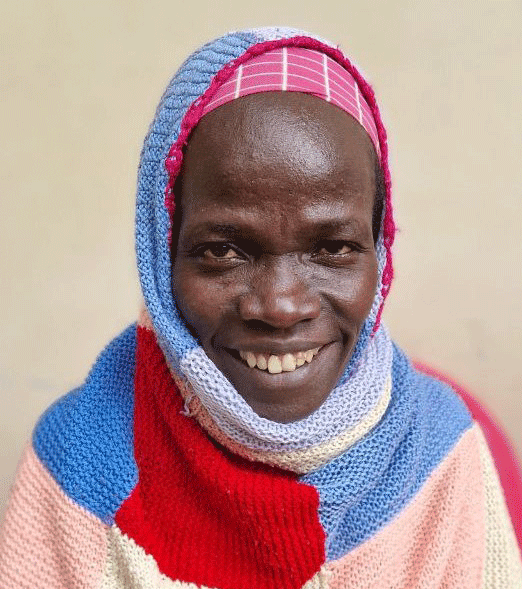Getu and her husband were eagerly anticipating the birth of their first child. Throughout her pregnancy, Getu remained active, assisting her husband with farming tasks, collecting wood from the forest, grinding cereals, and managing other household activities.
Their daughter was delivered safely, but Getu suffered a severe obstetric fistula injury due to prolonged, obstructed labor. The deep shame she felt because of her injury, coupled with a lack of money, prevented her from seeking treatment. She suffered in silence, telling us:
“I did not seek help because I don’t have money. I felt shame to expose my body without knowing whether it can be cured or not.”
Getu’s experience is not unique. An estimated 31,000 women in Ethiopia are suffering from untreated obstetric fistula injuries, with 1,000 new cases occurring each year. Many of these women are unaware that treatment is available, causing them to hide away, humiliated and alone.
That’s why Project Zero, Hamlin’s most ambitious program in decades, is crucial to eradicating this cruel condition in Ethiopia.
Hamlin Fistula Ethiopia’s Project Zero team is working tirelessly, going from woreda (district) to district, and house to house, to find women hidden with untreated fistula injuries and refer them for treatment at a Hamlin fistula hospital. Teams of Hamlin-trained community volunteers, known as Health Development Armies (HDA), are being trained to identify fistula cases, while midwives and nurses at local health centres are being mentored to improve maternal healthcare services.
Hanna Tesfaye, the Team Leader for Project Zero, trained as a midwife at the Hamlin College of Midwives and holds a master’s degree in public health. She met Dr. Catherine Hamlin at the College and shares her vision of eradicating obstetric fistula in Ethiopia.

“If a woman is free from obstetric fistula, she’s the backbone of the family. She’s a woman. She’s a sister, a mother, and a wife. The family will be productive and future generations will be productive.”
– Hanna Tesfaye
Increasing awareness of fistula and its treatment is vital to ensure women like Getu know that help is available. Awareness campaigns are being conducted in major marketplaces, community gatherings, schools, conferences for pregnant mothers, and through meetings and workshops with religious and community leaders and healthcare providers.
Getu was found by members of the HDA. She recounts:

“They came to my home and asked me certain questions and asked me if I have this kind of problem [fistula]. Then they linked me to the people in Project Zero who picked me and other women in our village in their car and brought us here [to Hamlin’s Metu Fistula Hospital].”
When she arrived at the hospital, she told us:
“I felt like I have hope. I have seen women get cured and return home, and I am waiting for my turn to be happy and return to my family in good health.”

